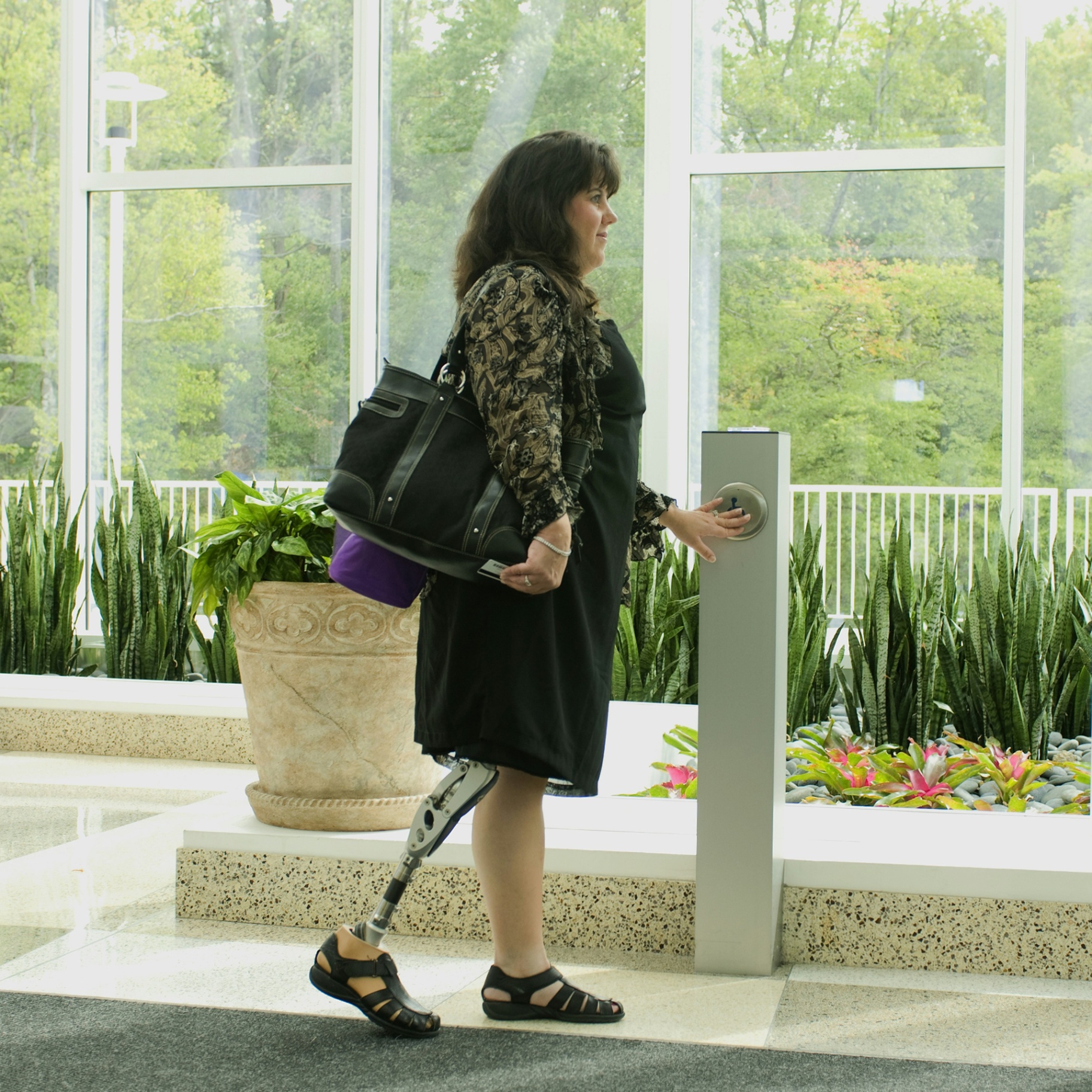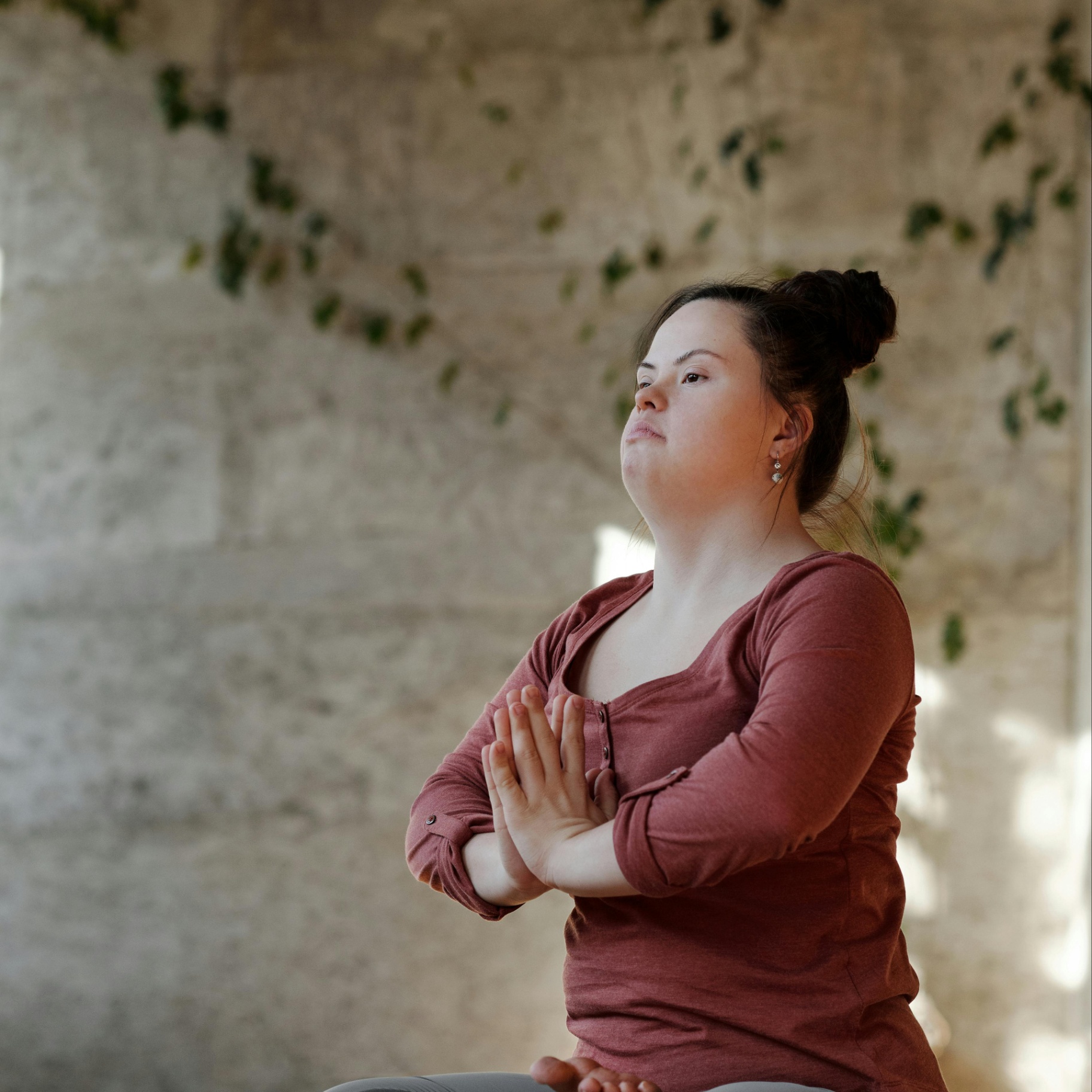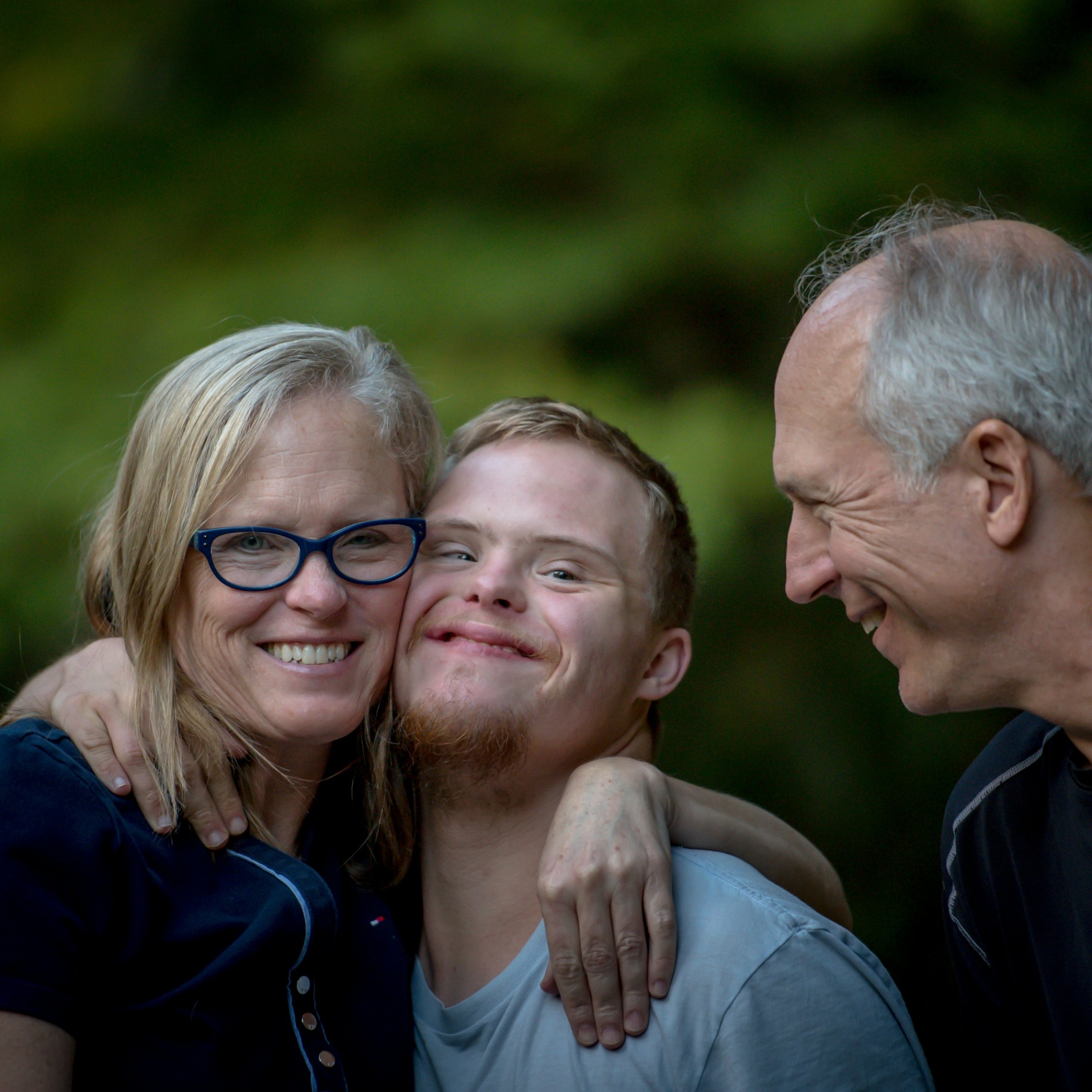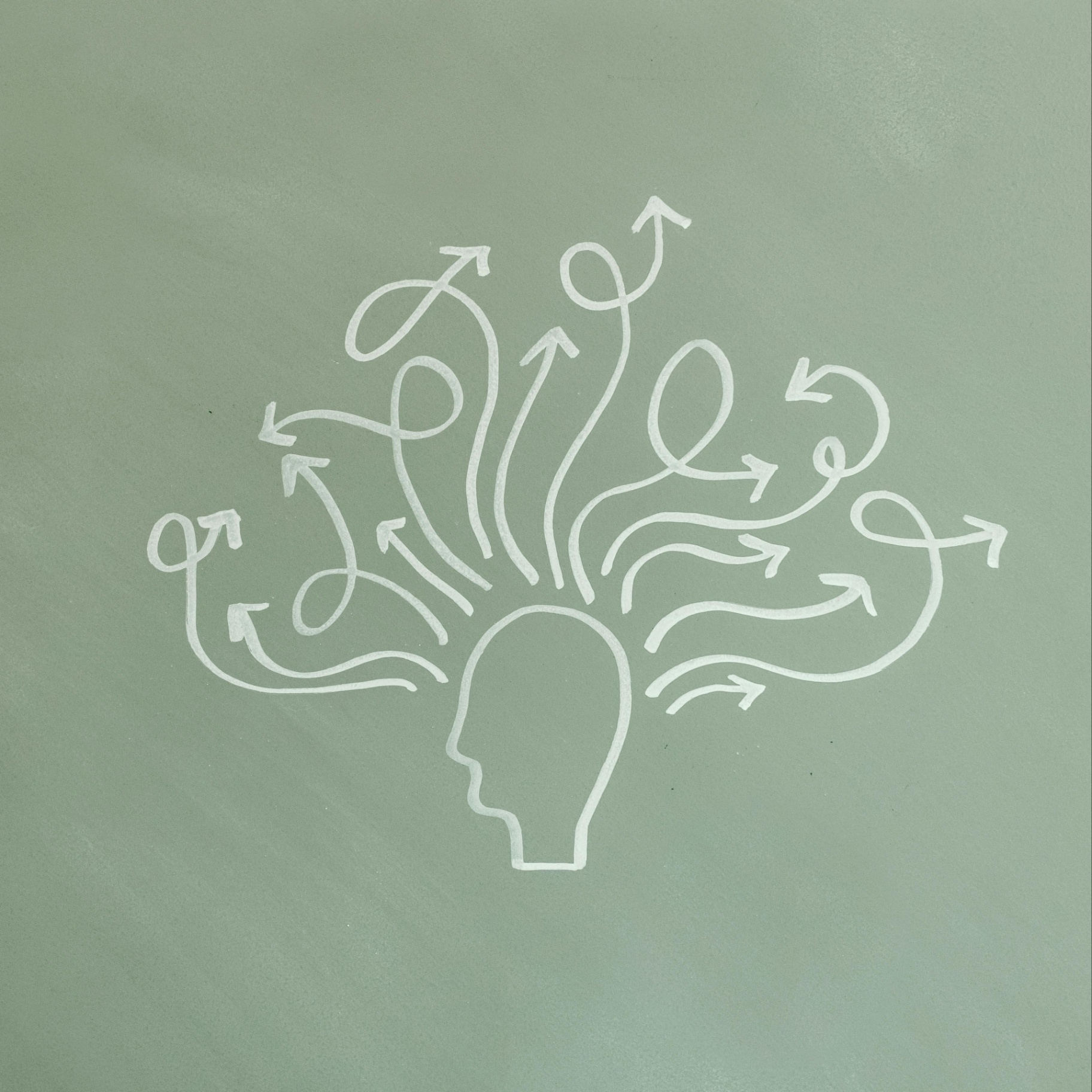Navigating (Dis)Ability in Florida
“It is our culture that disables. When one is disabled, the problem is not really that they have impairments and social skill deficits. The issue at stake is that they live in an ‘ableist’ culture that rarely affords them the space or opportunity to make their unique contribution to society and does not lift up the value of choosing them as friends.” – Ben Conner
Stigma-free, affirming, affordable therapy for Individuals with ability differences and their caregivers
Are you or is someone you know having problems related to (dis)ability differences?
If you are, maybe you’re adjusting to recent changes after an injury or medical condition and it’s been tough? Or you’ve been experiencing ability differences/changes for a long time, the stress has become too much, and you’ve realized that extra support may help?
Are you dealing with discrimination or unfair treatment due to your ability difference(s), and it’s getting in the way of fully living and enjoying your life?
Could you use a safe space to talk, feel, process what’s happened, explore what you need and want, and move forward?
Are you looking for support in advocating for yourself or someone else in meaningful ways?
Or maybe you’re looking for support as a caregiver to someone who is differentially- abled?
If you or someone you know is seeking help with difficulties navigating ability-related issues including social barriers that limit support and opportunity, I’m here to help. Please continue to learn more about ability-related issues, my personal and professional experience with (dis)ability, and how I can help you!
What does it mean to have a “disability?”
According to the Centers for Disease Control and Prevention (2020), “a disability is any condition of the body or mind (impairment) that makes it more difficult for the person with the condition to do certain activities (activity limitation) and interact with the world around them (participation restrictions).” The American’s with Disabilities Act (ADA, 2023), defines disability as a “physical or mental impairment that substantially limits one or more major life activities, a person who has a history or record of such an impairment, or a person who is perceived by others as having such an impairment.” While the former is a medical definition of disability, the latter is a legal one.
There are many types of disabilities
Some Types of Disability
- Thinking
- Remembering
- Learning
- Medical
- Physical/movement
- Vision
- Hearing
- Communication
- Mental health
Life for a person with a disability can be difficult.
Mental Health Effects of Life with Disability
- Stress and anxiety related to access barriers
- Exposure to discrimination – Discrimination against people with disabilities is common. About 30% of workers with a disability face workplace discrimination (Layne, 2017), and other forms of disability discrimination may be even more common. Some people believe that discrimination against people with disabilities is justified. Others view accommodations for disability as special rights or a courtesy. The effects of discrimination are both psychological and physical health (ADA 2019, 2020; CDC, 2020, 2023).
- Relationship issues – Difficulties disclosing their needs and getting what they need due to discrimination.
- Medical stress – Conditions that are difficult to diagnose, doctors minimizing or dismissing complaints
- Fear about the future, possible loss of support, changes in accommodations, changes in insurance coverage (e.g., not covering preexisting conditions), and death or decline
- Self-esteem issues – Although disabilities are common, the world is designed for individuals without disabilities. This can cause people with disabilities to question their self-worth.
The impact of a disability can be magnified or reduced depending on personal and environmental factors; it can not be fully understood without considering the context, the physical and social environment of the person with a disability. While many people with a disability face discrimination, each individual responds differently to the experience of discrimination. Individuals with a disability see disability differently, depending on the their impairment, social support, and life demands/circumstances. Like everyone else, they have many influences in their lives that shape who they are. These influences include culture, family background, community, religion, education, employment, friends, significant others, and co-workers. They are also affected by more global factors such as government policy, programming, and related funding. Beyond the disability itself, individuals with a disability, like all of us, have their own experiences, personal characteristics, histories, intersecting identities, and life situations that affect their psychological needs and wellness (APA, 2022: CDC, 2020).
People with disability face many barriers that cause greater hardship for persons with disabilities.
Barriers Faced by Persons with Disabilities
- Attitudinal barriers – stereotypes, stigma, discrimination at school or work, dismissive attitudes toward the rights of people with disabilities
- Communication barriers – inaccessible modes of communication (as for people who are hearing impaired)
- Physical barriers – e.g., impediments to mobility
- Transportation barriers – inaccessibility due to mobility or vision impairment
- Policy barriers – the absence of or lack of adherence to laws and regulations
- Program barriers – e.g., lack of healthcare services
- Social barriers – unequal access to employment opportunities and leisure activities (CDC, 2020; Balva & Tapia-Fuselier, 2020).
It is important that you know having a “disability” does not mean you’re disabled.
What may surprise you to know, persons with a disability comprise the largest minority group. Approximately, 60% of Americans have a chronic illness and 42% have two or more chronic conditions. About one in four, or 61 million American adults have an impairment of some kind, and most of us will have one at some point in our lifetime, temporarily or permanently (CDC, 2020, 2023). It is also the most diverse minority group as anyone can have a disability, and two people with the same disability may have very different needs.
Despite the fact that persons with a disability comprise the largest and most diverse minority group, society is designed for people without disabilities. Persons with disability are historically underrepresented and underserved in our society. This includes the mental health profession in which there is a lack of training on disability. The lack of training counselors and therapists receive on ability-related issues is surprising also since the mental health profession strives to provide equal, accessible, and competent services to all populations (APA, 2022).
The lack of representation for persons with disabilities is due in large part to societal messages. From a very young age, children with disabilities hear that they are different from others. Because many professions still focus on the medical model, these children come to believe they are “broken” and need “fixing.” This deficit-oriented mindset negatively shapes these children’s beliefs about themselves, others, and the world and can continue to affect them into adulthood. If the families of these children also have an inadequate understanding or skewed perception of disability, the negative impact of these societal messages can be perpetuated and further oppressive.
In other words, challenges related to ability issues may be less about the impairment itself and more about the social experiences. Some ability differences are visible to others and, in addition to the challenges faced due to the impairment itself, can result in stigma and social barriers which may be far more challenging. However, some impairments are not apparent (like hearing, some visual, cognitive, and mental health issues) and can lead to unique challenges due to misunderstandings, inaccurate perceptions, and negative judgments. An estimated 10% of persons with a disability have an invisible disability. Some people with an invisible disability choose not to disclose their impairment due to fear of discrimination. However, not disclosing may limit their access to accommodations that would allow them to function more effectively in their roles. As discussed above, social challenges create other barriers and can negatively impact school/work performance, as well as social functioning, and overall life satisfaction (Balva & Tapia-Fuselier, 2020).
Reasons for Disability-based Stigma
- Values, beliefs, family background, faith, education, and social media influences
- Perceptions of physical attractiveness
- Tendency to be drawn to people similar to us
- Internalized biases
- Lack of knowledge and misunderstanding about disabilities
How I Can Help
As a person with a congenital visual impairment, legally blind since birth, I have encountered many of the barriers and related challenges discussed above. These barriers, and challenges, most of which have been social in nature, largely influenced my motivation to be a mental health therapist and to dedicate much of my work toward helping other individuals who are differentially abled. I completed my dissertation on the obstacles and resiliencies of individuals with a congenital visual impairment (Stribling, 2015) and, in addition to my research, have worked with a number of diverse clients with a range of disabilities. Through my personal, educational, and work experience, I am uniquely able to help individuals with ability-related challenges identify and address their needs and navigate the environmental barriers, specifically the social barriers, they encounter in their day-to-day lives.
How Counseling may Help You Navigate Your Disability, Specifically the Social Barriers
- Helping you understand the mind-body connection
- Navigating relationship issues related to your disability
- Supporting your connection with loved ones to talk about you experiences
- Promoting an attitude of acceptance and introducing concepts such as neuro-diversity
- Helping you identify your needs
- Helping you play up to your strengths and resources
- Support you in advocating for yourself in meaningful ways
- For caregivers, helping you talk through the complex emotions and challenges caregiving can trigger
Specific Therapies Shown to Effectively Treat Stress Related to Disability
Acceptance and Commitment Therapy
Acceptance and Commitment Therapy (ACT) is a mindfulness and coping therapy that helps you to stay in the moment, accept thoughts and feelings self-compassionately, and focus on what you can change/control (activities meaningful to you) rather than on what you can’t change/control. By developing a more balanced perspective and committing to valued actions, you are able to put your energy toward moving forward to manage and reduce (dis)ability-related stress and better navigate the barriers you encounter and advocate for your needs.
Acceptance and Commitment Therapy in Florida
Cognitive Behavioral Therapy
Cognitive Behavioral Therapy (CBT) is an approach to counseling based on the idea that thoughts, feelings, and actions interact to create stress. In CBT, you learn to identify and modify the negative thoughts that influence your emotions and behaviors and change the behaviors that make stress worse. CBT interventions for (dis)ability-related stress management may include the following: education on stress, specifically stress related to the challenges of a disability; cognitive restructuring/challenging negative thoughts or internalized biases; relaxation/self-regulation skills (like breathing techniques, progressive muscle relaxation, guided imagery); assertiveness/advocacy training, and problem-solving skills (as with navigating environmental and specifically social barriers). A combination of these interventions may help you cope with your ability-related challenges and stress, whether you are a person with a disability or a caregiver.
Cognitive Behavioral Therapy in Florida
Mindfulness Therapy
Mindfulness Therapy, also called Mindfulness-based Therapy or Mindfulness-based Interventions, like many therapies, can be used alone or with other therapies as a holistic approach to improve stress coping. Through mindfulness, you learn how to be more present in the moment, self-aware, and self-compassionate; You learn to detach yourself from overwhelming and destructive thoughts and emotions that make stress worse and cause more serious mental (and physical) health issues. These positive attributes and skills have shown to help individuals with (dis)ability-related challenges navigate environmental barriers and improve their social functioning and satisfaction.
Mindfulness-Based Therapy in Florida
Solution-Focused Brief Therapy
Solution-Focused Brief Therapy (SFBT), or Solution-Focused Therapy (SFT), is a commonly used treatment to help effectively manage stress and navigate life’s challenges including those related to disability. It is an inclusive, collaborative, strength-based, and present and future-oriented approach. In SFBT, you clearly identify your goals for therapy, focus on exceptions and coping strategies/solutions to the problem, and move forward one step at a time on your path to achieving them.
Solution-Focused Brief Therapy in Florida
Together, we’ll personalize our sessions to best meet your individual needs for counseling. We’ll identify your goals, explore and build on your strengths and resources, and learn new strategies to help you cope with the stress of your (dis)ability related challenges.
Contact me today for a free consultation, and let’s get connected online. For additional information about my convenient and confidential online services, visit Online Therapy in Florida
References
American Psychological Association (2022, April). Guidelines for assessment and intervention with persons with disabilities. APA.org. https://www.apa.org/pi/disability/resources/assessment-disabilities
Americans with Disabilities Act (2020, February 28). Guide to disability rights laws. ADA.gov: U.S. Department of Justice Civil Rights Division. https://www.ada.gov/resources/disability-rights-guide/
Americans with Disabilities Act (2023, March). What is the definition of disability under the ADA? National Network: Information, Guidelines, and Training on the Americans with Disabilities Act. https://adata.org/faq/what-definition-disability-under-ada
Balva, D., & Tapia-Fuselier, J. (2020). Working with clients with disabilities: Implications for Psychotherapists. Psychotherapy Bulletin, 55(1), 19-22. Retrieved March 5, 2023, from https://societyforpsychotherapy.org/working-with-clients-with-disabilities/
Centers for Disease Control and Prevention (2020, September 16). Common barriers to participation experienced by people with disabilities. Disability and Health Promotions. https://www.cdc.gov/ncbddd/disabilityandhealth/disability-barriers.html
Centers for Disease Control and Prevention (2020, September 16). Disability and health overview. Disability and Health Promotions.
https://www.cdc.gov/ncbddd/disabilityandhealth/disability.html
Centers for Disease Control and Prevention (2023, January 5). Disability impacts all of us. Disability and Health Promotions.
https://www.cdc.gov/ncbddd/disabilityandhealth/infographic-disability-impacts-all.html
Centers for Disease Control and Prevention (2020, November 30). The mental health of people with disabilities. Disability and Health Promotions.
https://www.cdc.gov/ncbddd/disabilityandhealth/features/mental-health-for-all.html
Layne, Rachel (2017, October 16). The hidden cost of disability discrimination. Money Watch. https://www.cbsnews.com/news/the-hidden-cost-of-disability-discrimination/
Parker Harris, S., Gould, R., and Mullin, C. (2019). ADA research brief: Experiences of discrimination and the ADA (pp. 1-6). Chicago, IL: ADA National Network Knowledge Translation Center. Retrieved March 5, 2023, from https://adata.org/research_brief/experience-discrimination-and-ada
Stribling, M. E. (2015). Resilience and disability: A grounded theory study of the experience of individuals with a congenital visual impairment (Publication No.10791644) [Doctoral dissertation, Our Lady of the Lake University]. ProQuest. https://www.proquest.com/openview/5efe4cf12de7323b6e2bf05c1bb2f0cb/1?pq-origsite=gscholar&cbl=18750








